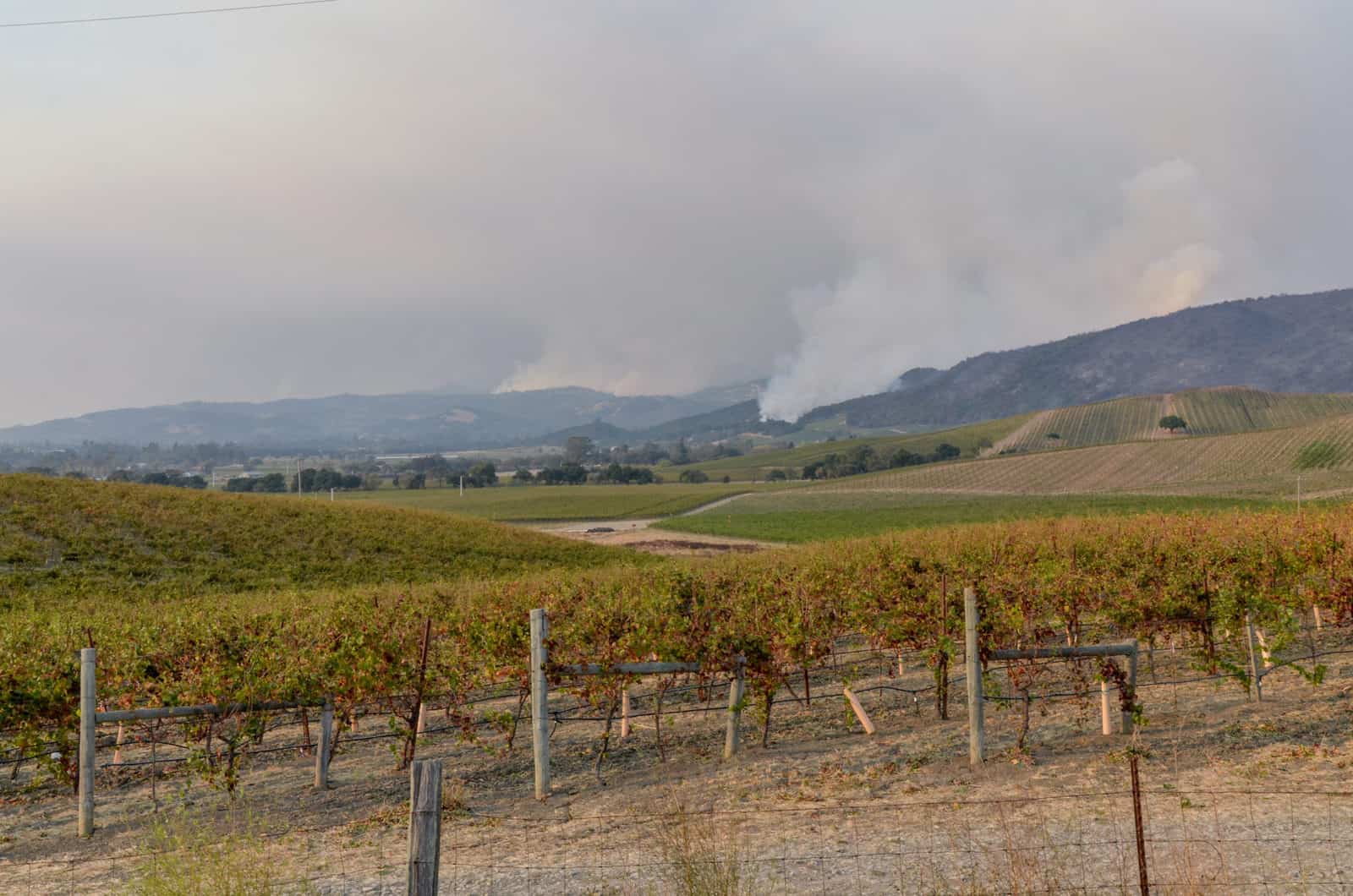
Since wildfires started raging across the West Coast last month, residents have faced high rates of air pollution, power outages, and record-breaking destruction. And for cheesemakers already impacted by the pandemic, this latest challenge has only made their jobs more complicated.
“The economic impacts of the fires include business interruptions, costly loss of goods, reduction of tourism, displaced employees, climate impacts, and health costs,” says Felice Thorpe, president of the California Artisan Cheese Guild. “Our economy is already struggling due to COVID-19, and this is adding to the stress.”
In California alone, there are currently 20 major blazes, according to BBC News. Because of the fires, local businesses are missing out on the seasonal visitors who normally travel along the California Cheese Trail at this time of year—a revenue stream that has already slowed to a trickle because of the pandemic. Some businesses have even been forced to close shops to keep customers and employees safe.
Cowgirl Creamery shut down its retail and food service locations in Point Reyes and San Francisco twice since the fires started. “We’ve had to adapt on all fronts, putting in place more employee safety measures, as well as new critical control points around air quality.” explains Cowgirl’s Managing Director Amanda Parker. “We’ve purchased internal air quality sensors and air scrubbers, continued to supply our teams with masks and other PPE, and instituted disaster relief pay policies to allow our teams paid time to recover should they need it.”
Although “wildfire season” has become a new normal for some West Coast residents, Parker says 2020 has been especially challenging. “Fire season generally begins months later than it did this year,” she says. “We are intimately aware of climate change in California; we feel its effects year after year, and it’s only getting worse.”
Thorpe agrees that this year has highlighted the gravity of California’s crisis. “The fires have gotten more frequent, there have been more of them, and they last longer,” she says. “On a macro level, we should all be concerned that businesses will [eventually] want to leave California. Reliable climate, power, and public health is essential for any business to function.” Thorpe hopes that the federal government will increase a cheese allocation to Supplemental Nutrition Assistance Programs for the community. “Food programs like these are a lifeline to struggling families,” she says. “They could really help out all cheesemakers until business picks up again.”
In the meantime, Parker suggests that folks at home looking to help should keep their fridges stocked with local wedges. “The best way to support us—and our fellow West Coast cheesemakers—is by purchasing our cheese wherever you can,” she says. “We’re especially excited about our Good Neighbors Collection, which works in partnership with the Victory Cheese movement to support American artisan cheesemakers—in this case, those in our own backyard.”




